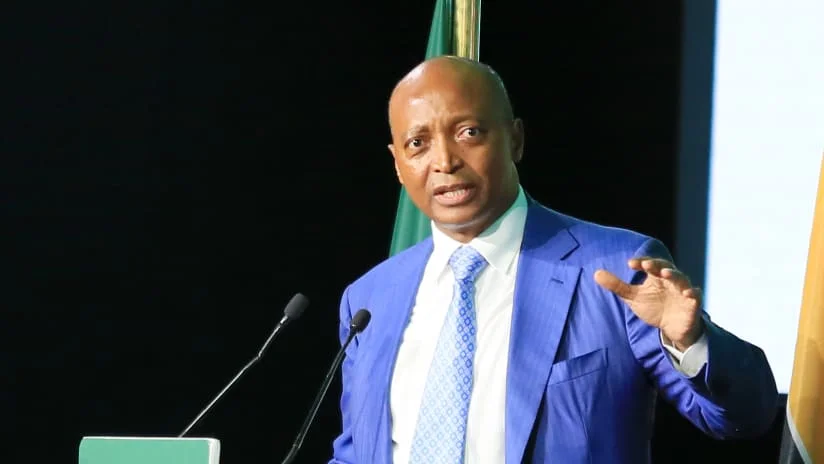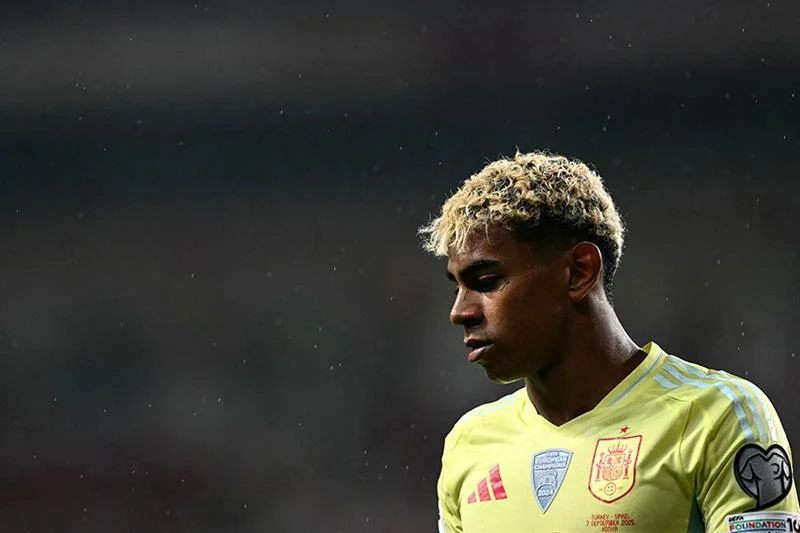On February 5, 2022, Dr. Patrice Motsepe, President of the Confederation of African Football (CAF), visited the families of victims killed in a tragic stampede at Olembe Stadium in Yaoundé, Cameroon, during the TotalEnergies Africa Cup of Nations (AFCON) match between Cameroon and Comoros on January 24, 2022. The incident, which claimed at least eight lives and injured 38 others, prompted a heartfelt response from CAF and the Cameroonian government.
A Gesture of Solidarity
Accompanied by Cameroon’s Minister of Sports and President of the Local Organizing Committee (COCAN), Professor Narcisse Mouelle Kombi, Motsepe visited bereaved families in the Olembe, Nkolbisson, Simbock, and Biyem-Assi neighborhoods of Yaoundé. Expressing deep empathy, Motsepe stated, “We cannot feel the same pain as you, but we have come to offer you the condolences and solidarity of the entire African football family and CAF.” He invoked the Bantu tradition, common across many African countries, emphasizing communal support in times of grief and assuring families, “You must not be alone.”
Motsepe was joined by CAF Vice-Presidents Ahmed Yahya, Seidou Mbombo Njoya, Kanizat Ibrahim, and Secretary General Véron Mosengo-Omba, underscoring the organization’s unified commitment to supporting the affected families. The day after the tragedy, Mosengo-Omba and Motsepe had visited injured supporters in Yaoundé hospitals, demonstrating an immediate response to the crisis.
The Olembe Stadium Tragedy
The stampede occurred at the south entrance of Olembe Stadium as fans attempted to enter the Round of 16 match between hosts Cameroon and Comoros. A government report attributed the crush to a “massive and late influx of supporters,” exacerbated when security forces opened a gate to ease overcrowding, leading to the tragic incident. Among the deceased were two women in their 30s, four men in their 30s, one child, and one individual whose body was taken by their family. Seven of the 38 injured suffered serious injuries.
Motsepe called for an immediate investigation, pinpointing the closure of an entry gate as a critical factor. “That gate was supposed to be open… for inexplicable reasons, it was closed,” he said at a press conference, vowing that such a tragedy would “never happen again.” The investigation focused on identifying who was responsible for the gate’s closure. As a result, the scheduled quarter-final match at Olembe Stadium was relocated to Ahmadou Ahidjo Stadium, and the stadium was authorized to reopen on January 30 after CAF lifted its suspension.
Continued Support and Preventive Measures
In a gesture of remembrance, Motsepe invited families of the victims to the AFCON final in Abidjan, Ivory Coast, on February 13, 2022, during the subsequent tournament. Reflecting on lessons learned, he noted, “The day after the final in Cameroon, we were in Cote d’Ivoire to prepare for the next AFCON, identifying failures and weaknesses to improve.” The 2024 AFCON in Ivory Coast, bolstered by a $1.5 billion investment in infrastructure, saw no repeat of such incidents, a testament to enhanced safety measures. Motsepe expressed pride in the tournament’s success, calling it “the best AFCON in history.”
Cameroon’s President Paul Biya ordered a separate government investigation, and the Minister of Health, Manaouda Malachie, pledged support for victims during hospital visits. FIFA and the Cameroonian Football Federation also extended condolences, emphasizing solidarity with the affected families.
A Commitment to Safety and Healing
Motsepe’s visits and CAF’s actions reflect a commitment to supporting the bereaved and preventing future tragedies. The Olembe incident, coupled with historical stadium disasters in Africa, such as those in South Africa (1991, 2001) and Ghana (2001), underscored the urgency of improving stadium safety across the continent. Motsepe highlighted this as a priority, noting in 2025 that the number of African countries unable to host matches due to inadequate infrastructure had decreased from 36 to 12, with ongoing efforts to support development.
The tragedy remains a somber reminder of the need for robust safety protocols, but Motsepe’s engagement with the families and CAF’s proactive measures demonstrate a resolve to honor the victims and ensure safer sporting environments for all.






